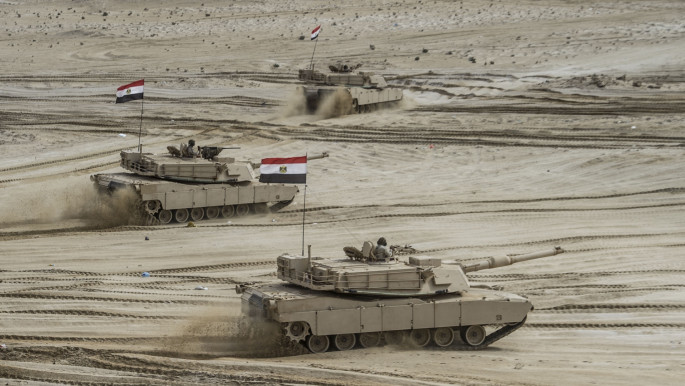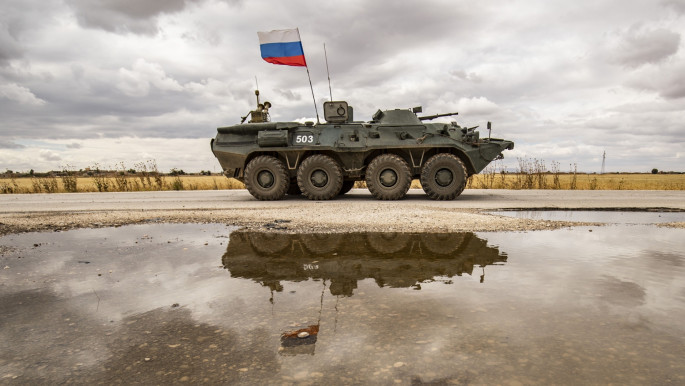Russia and Turkey on collision course in Libya's conflict
The Libyan civil war has become a battlefield where many regional and external players have taken sides. It is also the second conflict zone after Syria where Turkey and Russia's interests have collided.
As Moscow and Ankara pursue their strategic interests in Libya it is important not to underestimate the economic incentives, especially since their objectives overlap.
Russia and Turkey have sunk billions into pre-and post-Gaddafi Libya, and both are hoping to recoup these investments by becoming major players in the conflict's political resolution.
Turkey has historically been active in Libya's business sector throughout former dictator Muammar Gaddafi's rule, with the construction sector the most attractive area for Ankara's investments. Libya was the first foreign country that Turkey's Contractor's Union, the TMB, invested in back in 1972.
From then until 2020, major Turkish construction companies such as Dogus, Enka and others have undertaken projects valued at $29 billion, making Libya the third country in Turkish construction investments following Russia and Turkmenistan.
Turkish companies are aiming to return to Libya when the political environment is conducive to do so. According to the Mustafa Karanfil, chairman of the Turkey-Libya Council of the Foreign Economic Relations Board of Turkey (DEIK), Turkish investors aim to harness $120 billion worth of investments.
 |
Russia and Turkey have sunk billions into Libya and hope to recoup these investments by becoming major players in the conflict's political resolution |  |
Karanfil also noted around $19 billion worth of unfinished projects in Libya and a total of $4 billion in receivables due to losses, including collateral, machinery and equipment.
Russia's economic engagement in Libya, on the other hand, has mainly been in the energy sector. Russian companies such as Gazprom, Lukoil, and Tatneft were active in the country before Gaddafi's demise. Tatneft and Gazprom signed exploration and development deals in the country in the 2000s.
 |
|
| Read more: Egypt's military gambit in Libya risks backfiring |
In 2008, Putin became the first Russian president to visit Tripoli, where he signed numerous contracts for economic, technical, and military cooperation reportedly worth $10 billion.
In the post-Gaddafi period, Russian companies have tried to return to Libya. In 2017, Russian oil giant Rosneft signed a deal to purchase oil from Libya's National Oil Corporation (NOC) using a long-term prepayment model similar to transactions made in Venezuela and Iraqi Kurdistan.
Moscow is also looking for ways to compensate for the losses it faced following the overthrow of Gaddafi. Russia expects to make $150 million from construction projects, $3 billion from railway construction, $4 billion from arms sales, and up to $3.5 billion from energy deals in Libya.
Turkey's more active engagement in Libya's oil and gas industry could spoil Russia's plans, both on the ground and tactically. For instance, last December, Tatneft announced that it was resuming exploration activities in the Hamada basin. Since then the territory has come under full control of the Turkey-backed Government of National Accord (GNA).
 |
Turkey's more active engagement in Libya's oil and gas industry could spoil Russia's plans |  |
Although Tatneft agreed its return to Libya with Libya's National Oil Corporation (NOC), whose legitimacy the Tripoli-based government supports, it will be difficult to blame the GNA if the latter decides to inhibit the Russian company's engagement in its territories, given reports about the presence of Russian mercenaries in the oil and gas fields controlled by the Libyan National Army (LNA).
Ankara's active engagement in Libya's territorial waters could also derail Moscow's plans to strengthen its positions in the Mediterranean basin. By hoping to gain ground in a future Libyan government, Moscow was aiming to expand its influence over southern Europe - a significant customer for North African oil exports, and also an increasingly competitive market.
 |
|
| Read more: Warm waters at last: Russia's expanding military footprint in the Middle East |
Turkey's maritime agreement with Libya and its interest in developing oil and gas fields in Libya's territorial waters pose a threat to Moscow's plans.
Turkey's maritime agreement with the internationally recognised Tripoli-based government, followed by military successes against General Khalifa Haftar's LNA,will undoubtedly enhance Ankara's position in getting more business opportunities in the country, including in the oil and gas sectors.
Russian energy companies' agreements with Libya's NOC will still preserve their legitimacy. However, reports on Russian private military companies (PMC) in Libyan oil fields could impact Moscow's relations with the NOC and challenge the return of Russian companies to Libya.
Follow him on Twitter: @RaufNMammadov



